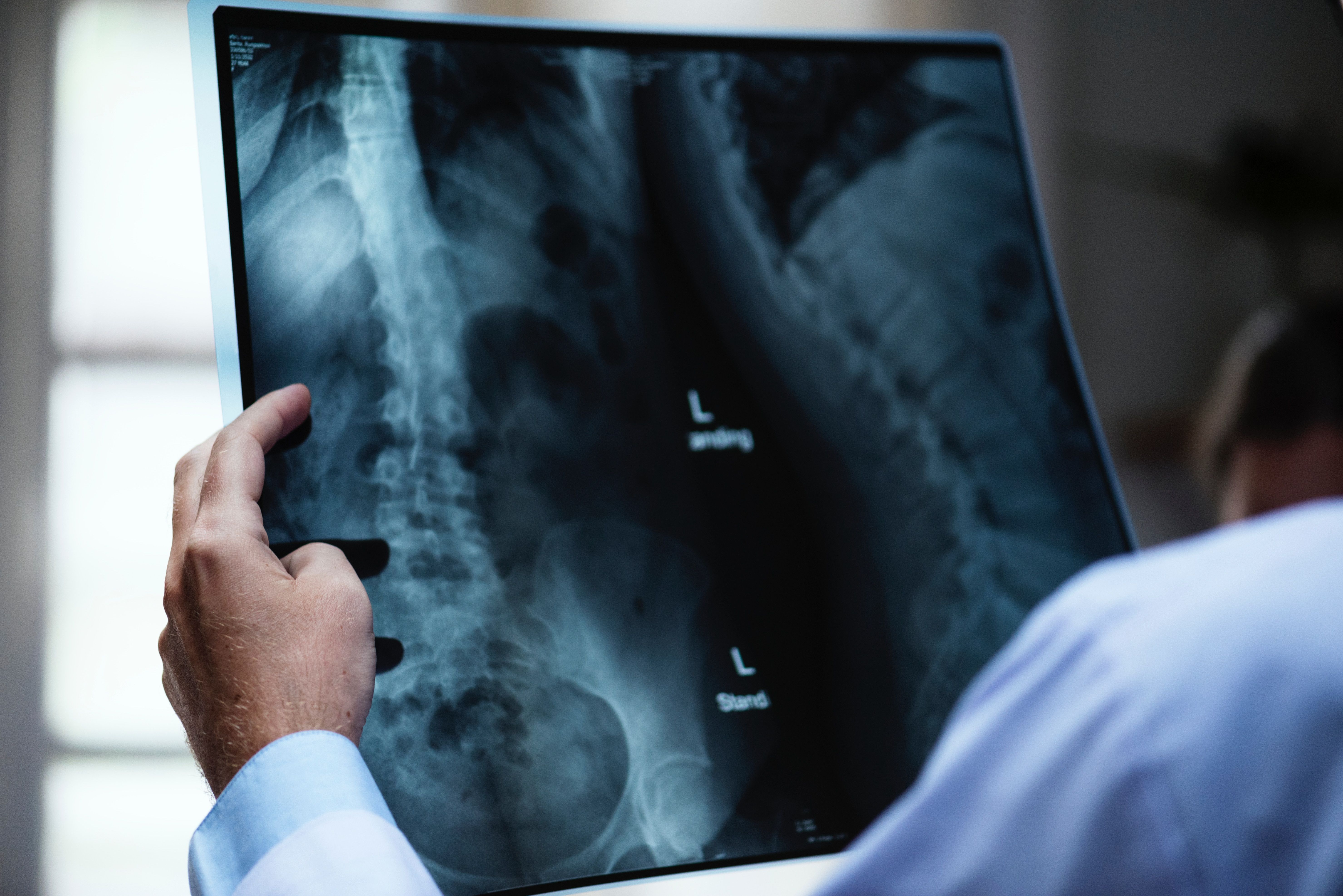Patient Instructions
All Spine Surgery Pre-Ops
Pre-operatively patients should avoid eating or drinking from midnight the night before surgery until the time of surgery. Routine daily medications may be taken with a sip of water only for hypertension and diabetes. Any food or drinks or more than a sip and surgery will be cancelled.
Anti-inflammatory medications (NSAID's) can cause bleeding complications during surgery and can also inhibit the fusion process. NSAID's should be discontinued for 10 days prior to surgery.
NSAID's include:
- Ibuprofen
- Motrin
- Naprosyn
- Relafen
- Voltaren
- Aleve
- Daypro
- Mobic
These medications will be helpful after surgery, but should not be used for 6 weeks with a cervical fusion and 12 weeks with a lumbar fusion. They can be used immediately after other surgeries. Tylenol, Celebrex, and Vicodin are all okay.
Please remember to bring MRI films with you to surgery.
Pre-operative Medications
These medications should be discontinued 2 weeks prior to surgery:
- Aspirin
- Plavix
- Coumadin (warfarin)
- Ephedra
- Garlic
- Ginko
- Ginseng
- Kava
- St. John's Wort
- Valerian
Procedure Risks and Benefits
You physician will go over the risks and benefits of the treatment or procedure that best fits your needs. Do not hestiate to ask any questions or voice any concerns you may have.
Click a heading below to learn more about the risks and benefits of each procedure.
Laminectomy and Microdiskectomy
Risks and benefits of lumbar laminectomies, hemi-laminectomies and microdiskectomies include numbness, weakness, paralysis, paresthesias, bowel and bladder problems such as incontinence, hemorrhage requiring transfusion, or local hematoma requiring re-operation. There is also a chance of infection or cerebral spinal fluid leak.
All of these complications are unlikely to happen and do so at a rate of less than 1%. The chance of being better after surgery is over 90%. The chance of being worse is less than 1%. The chance of being about the same is up to 5%.
As we do not remove the entire disk, there is a chance of re-herniation that may occur soon after surgery or 10 years later. The chance of this occurring is 5% over 10 years. After a decompression usually the leg pain is better immediately, but occasionally pain may worsen for a few weeks as the swelling subsides.
Lumbar Fusion
Risk and benefits are the same as above, as well as failure to fuse and hardware breakage. Patient's having a lumbar fusion should wear the brace when up and walking for more than 20 minutes. They do not need to wear the brace when driving in a car or sitting. The brace is not needed to walk to the bathroom.
Activity is encouraged (ie long walks with the brace). Stairmaster, treadmill, elliptical machine, bicycling and swimming are all good options. The brace should be worn when up and exercising with the exception of swimming.
The chance of being better after surgery is over 90%. The chance of being worse is less than 1%. The chance of being about the same is up to 5%. Various studies suggest that the risk of adjacent level arthritis after a fusion is 10% greater than the average population over 10-20 years. Most people, however, do very well.
Cervical Surgery
For cervical diskectomies and fusions the chance of numbness, weakness or paralysis is far less than 1%. The chance of hoarseness of voice is less than 5% and the chance of some difficulty swallowing in the short term is 20% and in the long term less than 1%. Most patients notice significant improvement in radicular arm pain immediately after surgery as well as resolution of weakness fairly quickly. Numbness and paresthesias tend to resolve more slowly over several months.
The most common complaint patients have for the first several weeks after surgery is stiffness in the back of the neck, between the shoulder blades, and along the trapezius muscle. This tends to improve with anti-inflammatories and muscle relaxants and usually resolves over a few weeks.
The chance of being better after surgery is over 90%. The chance of being worse is less than 1%. The chance of being about the same is up to 5%. Various studies suggest that the risk of adjacent level arthritis after a fusion is 10% greater than the average population over 10-20 years. Most people, however, do very well.
Patients also may notice the sensation that something is in their throat when they swallow due to the mobilization of the esophagus during surgery and the position of the anterior cervical plate. This tends to improve over several weeks. Regular diet is usually fine.
All Spine Surgery Post-Ops
Keep the wound as dry as possible for the first 2 weeks after surgery. Showers are OK; pat dry the wound immediately afterwards. Avoid submerging the wound (ie baths). Contact the office if redness, drainage, increased pain, or wound separation occurs for these are all signs of wound infection.
Ambulation is encouraged after surgery. Try to stay as active as possible. The main postoperative restrictions are no running, jumping or lifting more than 5lbs for six weeks after surgery. Excessive bending and twisting as used in golf and tennis should be avoided during this time as well. Driving should be avoided for 5-7 days after surgery due to soreness and the use of narcotic pain medications. Sexual activity should be withheld for about a week; then resume this activity in the dependent position for another 1-2 weeks. Swimming is allowed after 2 weeks.
Post-operative radicular pain tends to improve very quickly as does weakness. Numbness and paresthesias tends to linger for several months.
As a rule of thumb: "If it is starting to feel better, it will continue to feel better."



